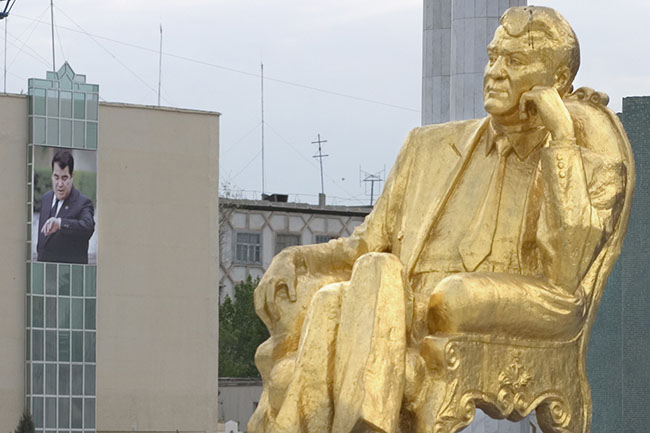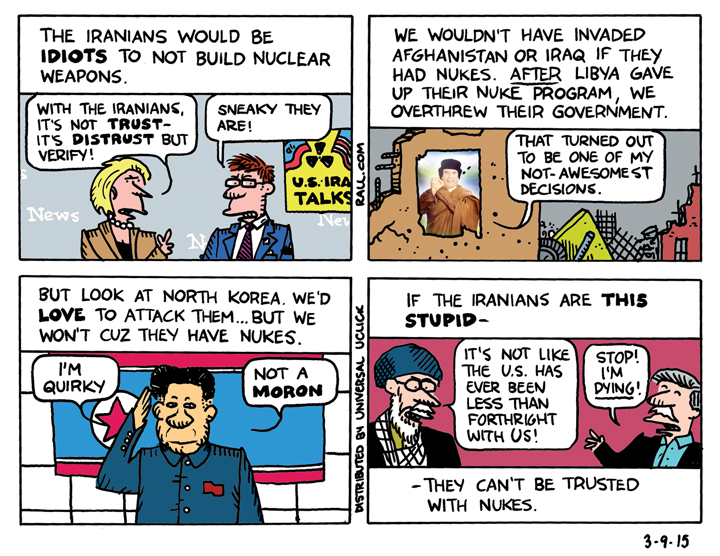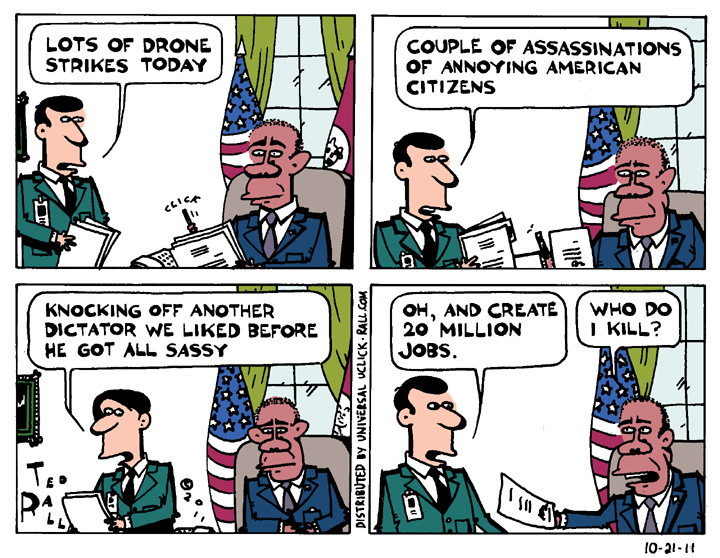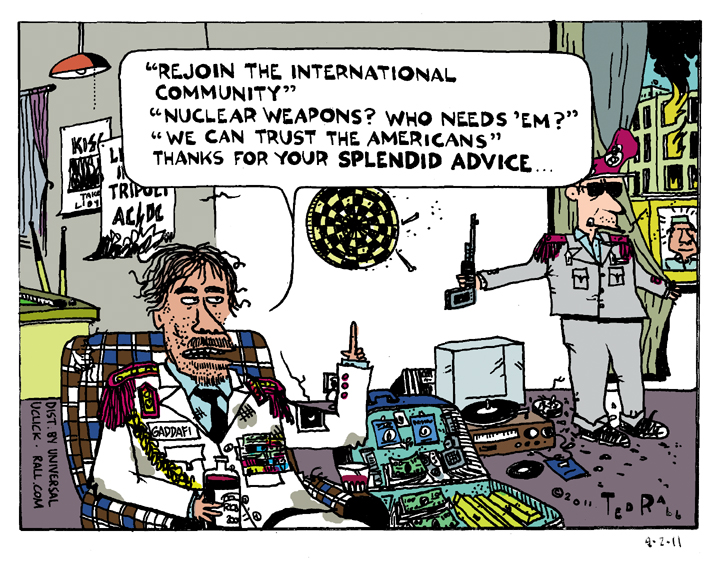
What happens now?
I suppose it’s my own fault that everyone’s asking me how America will change after January 20th. Such is the price one pays for being America’s political Cassandra: predicted Donald Trump would win the election, told the Democrats snubbing Bernie was a mistake, said we would invade Iraq two years before we did (and that we’d lose), may have been the only person besides Barbara Lee who knew that the “good war” in Afghanistan wasn’t good and wasn’t winnable. I wish I were this good at picking stocks; it pays better.
Anyway: what does happen now?
 Three scenarios show us what every day life in Trumpian America will probably feel like: Third World dictatorships, prison, and having an alcoholic parent.
Three scenarios show us what every day life in Trumpian America will probably feel like: Third World dictatorships, prison, and having an alcoholic parent.
In a dictatorship, particularly where the despot is a megalomaniac in the vein of a Saddam Hussein or a Muammar Gaddafi, citizens obsess over the Great Leader’s every move.
These days, there’s no better place to witness this phenomenon than the Central Asian republic of Turkmenistan. These days, a guy named Gurbanguly Berdimuhamedow is in charge of this former Soviet backwater. Berdimuhamedow recently made news by unveiling a massive statue of himself, in gold, riding a golden horse, on top of a cliff. (I assume he’s unfamiliar with “The Man From Snowy River.”)
Berdimuhamedow comes off as a relatively modest fellow compared to his predecessor, Sapamurat Niyazov. Niyazov, who gave himself the title “Turkmenbashi” (Leader of All Turkmen), plastered his face on even huger statues, posters, postage stamps, and the nation’s currency. He named everything after himself and his family, including a major city, months of the year, and a meteorite. But while it isn’t hard to draw a comparison between Niyazov’s ego and that of a certain New York real estate developer, what’s particularly relevant is the outsized impact Turkmenbashi had on Turkmens’ everyday lives.
Not unlike the pigeon- and kite-banning Taliban regime in nearby Afghanistan, Niyazov was constantly passing edicts and decrees about anything and everything that crossed his mind. He banned lip-syncing, dogs (only from the capital, because of their “unappealing odor”), smoking (only among government employees, and only after he had heart surgery), opera, ballet and circuses (“decidedly unturkmenlike”) and beards.
Imagine what he could have done on Twitter at 3 am.
New Yorkers facing four to eight years of midtown Manhattan gridlock due to the security cordon around Trump Tower can already sympathize with motorists in the Turkmen capital of Ashgabat who know to stay put whenever their dictator is on the move because every major artery is closed. Neither Trump nor the Turkmen tyrant gives a fig for creating commuting havoc.
Whenever I visited Turkmenistan under Turkmenbashi, the only thing anyone ever talked about – and this included ex-pats – was Turkmenbashi. What wacky new rule might the quirky monster impose next? What psychotic new infrastructure project? A ski resort in the blazing hot desert nation? A giant lake?
There was no getting away from this guy. If your kid wanted to go to college, Turkmenbashi was the country’s one-man university admissions committee, personally considering every applicant.
Turkmenistan’s totalitarian regime controls where people work, what news they see, even their facial hair. In such a nation obsessing over the leader’s latest moods isn’t just a symptom of a sick society – it’s a tactic essential for human survival.
Trump probably won’t impose totalitarianism. He’s too lazy for that. But you can already see his manic mind at work, for example at his first post-election news conference. He’s all over the place, free-associating to the point of babbling: “Our veterans have been treated horribly. They’re waiting in line for 15, 16, 17 days. Cases where they go on in and they have a minor early-stage form of cancer and they can’t see a doctor; by the time they get to the doctor, they’re terminal. It’s not going to happen, it’s not going to happen. So David is going to do a fantastic job.”
Ho-kaay.
Trump wants to control aspects of our lives that used to belong to us. He’s unpredictable and weird and on some sort of spectrum and now, he’s incredibly powerful. No wonder we are watching and waiting so attentively: we’re scared!
We ought to be.
Many of us will feel like inmates in a prison. People who have done time will tell you that it’s important to study the guards, particularly the sadistic ones. You don’t want to wind up dead just because some correction officer came to work in a foul mood following a fight with his girlfriend, and you weren’t smart enough to avoid or suck up to him.
If you have or had an alcoholic parent, you are probably well prepared for what we as a nation are about to endure. How much you get abused tonight will be directly related to how many Daddy Donald tied on after work. So it’s always wise to watch how fast he takes the turn into the driveway. Read the signs right, and you might just make it out the back door in time.
Of course, there’s also the big question: will America survive Trump?
The country will survive no matter what. The system? Maybe not. At this point, probably the only thing that would save the system would be for the Republican-controlled Congress to impeach Trump. (This would also have the effect of saving the Republican Party.) This would have to happen in relatively short order, no longer than in a year or two.
Sorry. I wish I had better news.
It’s never fun to be a Cassandra.
(Ted Rall is author of “Trump: A Graphic Biography,” an examination of the life of the Republican presidential nominee in comics form. Please consider supporting Ted’s hard-hitting political cartoons and columns and see his work first by sponsoring his work on Patreon.)



